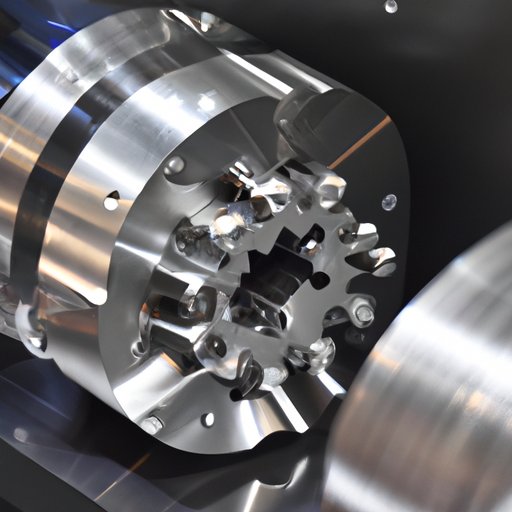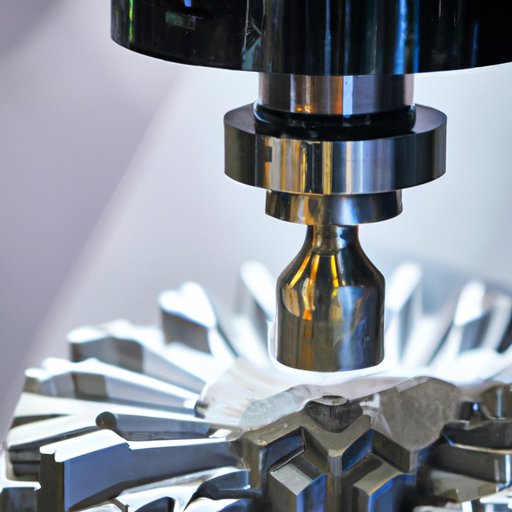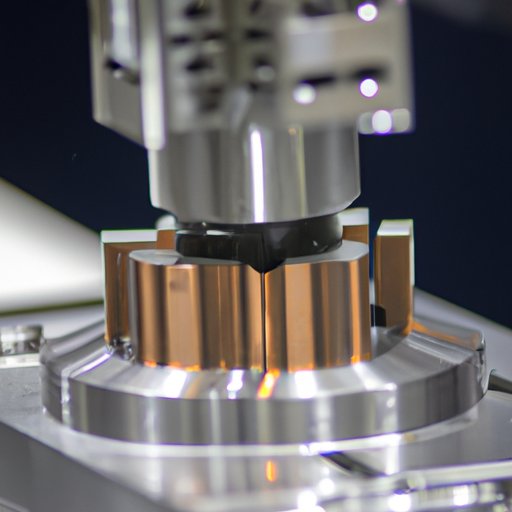Introduction
Precision machining technology is a process used by manufacturers to create parts and components with high accuracy and repeatability. It involves cutting, drilling, grinding, and shaping metal and other materials with extreme precision. This technology is used in a wide range of industries, from automotive to aerospace, and has revolutionized the way products are made.
The benefits of precision machining technology include increased accuracy, reduced waste, cost savings, improved efficiency, quality control, and automation. Understanding the science behind this technology and its impact on the manufacturing industry is essential for staying competitive in today’s market.

Exploring the Benefits of Precision Machining Technology
Precision machining technology offers several key benefits that make it an attractive choice for many manufacturers. The most notable of these benefits is increased accuracy. By using specialized tools and equipment, manufacturers can create parts and components with extremely tight tolerances. This helps to ensure the quality and reliability of the finished product.
The use of precision machining technology also reduces waste. By being able to accurately cut and shape materials, manufacturers can minimize the amount of scrap material created during the production process. This not only reduces costs, but also helps to protect the environment.
In addition to reducing waste, precision machining technology also offers cost savings. By eliminating the need for manual labor and allowing for faster production times, manufacturers can save money on labor costs and increase their profit margins.

A Comprehensive Guide to Precision Machining Technology
Precision machining technology involves a variety of different processes, including milling, turning, drilling, and grinding. Each of these processes requires specialized tools and equipment to produce high-quality parts and components. Common materials used in precision machining include steel, aluminum, brass, and plastic.
When it comes to the tools and equipment used in precision machining, there are several options available. CNC (Computer Numerical Control) machines, lathes, and abrasive waterjet systems are all commonly used. These machines allow for highly accurate and repeatable cuts, which is essential for producing high-quality products.
Understanding the Advantages of Precision Machining Technology
In addition to increased accuracy and reduced waste, precision machining technology also offers several other advantages. One of the most significant of these is improved efficiency. By eliminating the need for manual labor, manufacturers can speed up production times and reduce costs.
Another advantage of precision machining technology is quality control. By using computer-aided design and manufacturing (CAD/CAM) software, manufacturers can ensure that their parts and components meet the highest standards of quality and reliability. This helps to ensure customer satisfaction and maximize profits.
Finally, precision machining technology offers the benefit of automation. With the use of robotics and other automated systems, manufacturers can reduce labor costs and increase productivity. This makes it possible for them to stay competitive in today’s market.
The Science Behind Precision Machining Technology
The science behind precision machining technology is complex and ever-evolving. At the core of this technology is computer-aided design and manufacturing (CAD/CAM). CAD/CAM software allows engineers to design parts and components with extreme accuracy and repeatability. This software also provides manufacturers with the ability to simulate the machining process before it is carried out, ensuring that the finished product meets their exact specifications.
Robotics and automation are also integral to precision machining technology. By using robots and other automated systems, manufacturers can speed up production times and reduce labor costs. This makes it possible for them to stay competitive in today’s market.
Finally, laser technology is playing an increasingly important role in precision machining. Lasers can be used to cut and shape metals and other materials with extreme accuracy, making them ideal for producing high-quality parts and components.

How Precision Machining Technology is Changing Manufacturing
Advances in technology have had a profound impact on the manufacturing industry. As precision machining technology continues to evolve, it is transforming the way products are made. Manufacturers are now able to produce parts and components with greater accuracy and repeatability, resulting in higher quality products and increased customer satisfaction.
However, these advances in technology present some challenges for manufacturers. As the demand for precision machined parts increases, so too does the pressure on manufacturers to remain competitive. To stay ahead of the competition, manufacturers must continually invest in new technologies and processes.
The future of precision machining looks bright. As technology continues to advance, manufacturers will be able to produce even higher quality parts and components at lower costs. This will help to further drive innovation in the manufacturing industry and create opportunities for businesses around the world.
Conclusion
Precision machining technology is revolutionizing the manufacturing industry. By offering increased accuracy, reduced waste, cost savings, improved efficiency, quality control, and automation, it has become an essential tool for many businesses. The science behind this technology is complex and ever-evolving, with advances in robotics, automation, and laser technology driving the future of manufacturing.
Overall, precision machining technology is changing the way products are made and helping businesses to stay competitive in today’s market. By investing in this technology and understanding its benefits, manufacturers can remain at the forefront of innovation and take advantage of the many opportunities it presents.
(Note: Is this article not meeting your expectations? Do you have knowledge or insights to share? Unlock new opportunities and expand your reach by joining our authors team. Click Registration to join us and share your expertise with our readers.)
